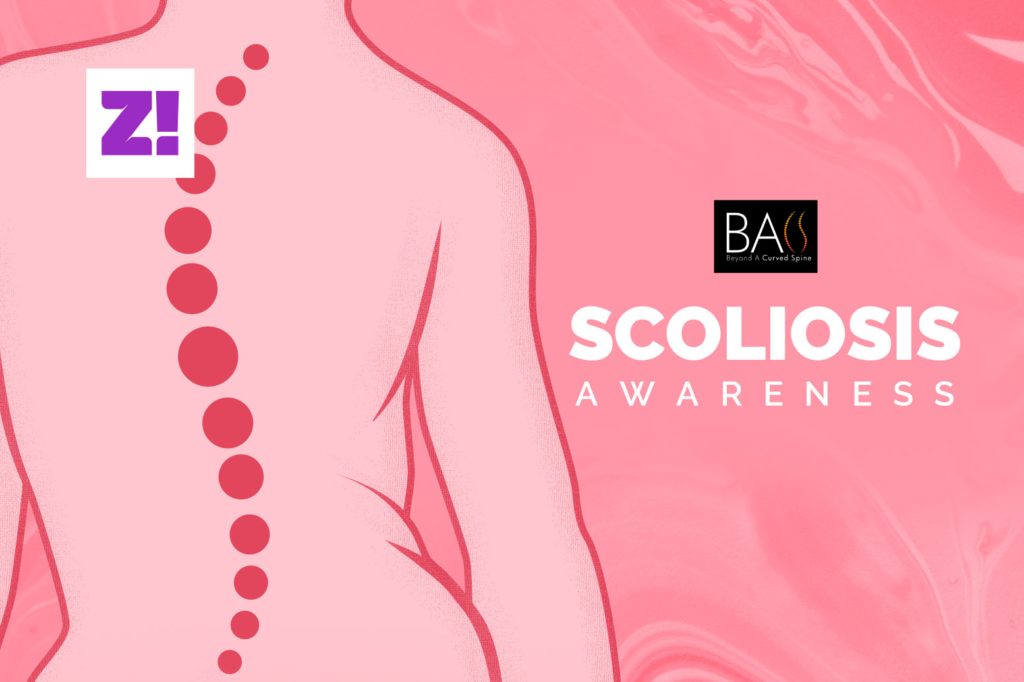Questions
This is a question
Choose all that apply:

Get your tickets here for a day of fun, networking and partayyyyy
wordpress-seo domain was triggered too early. This is usually an indicator for some code in the plugin or theme running too early. Translations should be loaded at the init action or later. Please see Debugging in WordPress for more information. (This message was added in version 6.7.0.) in /home/bcm/src/dev/www/wp-includes/functions.php on line 6121


Talk True is a Zikoko limited series for medical myth-busting. With each episode, we’ll talk to medical professionals about commonly misunderstood health issues to get the actual facts.
Eight out of ten babes probably share this experience: They were living with other ladies for a while, and suddenly, they realised their menstrual periods had synced.

It’s such a widespread notion that one hardly knows when or how it started; we’ve just come to accept it. But is it based on scientific fact or tales-under-the-moonlight material? An internal medicine practitioner, Mary says it’s more of the latter.
“We weren’t taught period syncing in medical school, and that’s largely because it’s not backed by extensive research,” Mary says.
Period syncing describes a popular belief that women who didn’t have synchronised periods before will begin to when they stay in close proximity long enough. It’s also known as Menstrual Synchrony or the McClintock effect.
Dr Martha McClintock was the OG babe who started it all. In 1971, she studied a group of 135 women living in a college dorm and concluded that the female pheromones communicate with each other due to physical closeness, triggering period syncing.

Period syncing isn’t limited to close proximity with other women. Other reports claim menstrual cycles also sync with lunar cycles, meaning that periods can be tracked with the different moon phases.
According to this study, if menstruation starts during the full moon phase, it’d mean the woman is most fertile during the new moon — a claim Mary insists has no scientific basis.
“It’s a thing in some cultures — definitely not common in Nigeria, though — but no, you can’t sync with the moon.”
You can sync with other hot babes at Zikoko’s HERtitude! Click here to buy your ticket.

Mary explained that, while there’s little scientific evidence to prove syncing is due to hormones or lunar cycles, there’s actually a valid mathematical explanation.
“Women have different menstrual cycles, and over time, they’ll overlap. For instance, I have a 28-day cycle. This means I won’t start my period on the same day of each month because my cycle doesn’t span a complete month. I can start on the 15th of month one and start on the 18th of the following month. I may even see my period twice in the same month. This probability is higher in those with 26-day cycles, and if such a person is your roommate, your periods will overlap at a point.
It’s different from someone with a complete 30-day cycle who always menstruates on a particular date. Even then, if you live with someone with a different cycle length, overlapping is a possibility.”

It also explains the moon thing. When the early people — read as “our ancestors” — still relied on lunar calendars, it was just natural to track the menstrual cycle with the lunar cycle as both timelines share an approximate average of 28 days. It wasn’t universal, as there would’ve been women with different cycle lengths, but it kinda worked. Again, mathematics.
Quite a number of recent studies have debunked the McClintock effect.
“A 2006 study by Human Nature and another one by Oxford University provided data which demonstrated how unlikely it is for women to disrupt each other’s menstrual cycles just by being in close proximity to one another.”
Since science has agreed that your female bestie doesn’t pose a threat to your menstrual cycle, here are some of the factors Mary confirms can actually affect your period.
“Stress and medication due to certain chronic illnesses can either delay your period or bring it on early. Birth control pills also alter the levels of certain hormones in your body — specifically progesterone and estrogen — and these control when, or if, you see your period.”
Menstrual cycles don’t converge; they diverge — increase indefinitely — during the course of life. If you do feel a connection with the other women in your life, it’s probably a coincidence.
However, if you’ve “synced” with the women you live with before and then experienced an “out of sync” period, it doesn’t mean anything is wrong with your cycle.
NEXT READ: Talk True: Are Toilet Infections Actually a Thing?


No woman enjoys going through the stress of menstrual cramps, hormonal changes during ovulation and period care. This is why you’d expect menopause, the phase when monthly menstrual flow ceases, to be more stress-free, right?
Speaking to Edith, a 54-year-old on the topic, she says she was terrified about menopause because she’d heard stories of women who suffered excessive bleeding just before their period stopped. “I don’t know why or how, but someone told me it was better to take out my womb before I got to menopause because it could lead to cervical cancer”, she adds.
While different people experience different changes, research shows menopause does not cause cancer. Rather, the treatment of cancer involving a hysterectomy (removal of ovaries) can trigger menopause. So when you deep it, it’s the complete opposite of what Edith heard. She later figured out as she approached her 40s that it was all a lie.
You can’t expect your body to react to menopause the same way as someone else’s. So even if nothing else happens, just know your period will be playing hide and seek with you. After two months without your period, it could just show up the next month. “When my period started to come one month then disappear for two, I knew menopause was close”, Edith says. “It continued on and off for about six months before my period eventually stopped coming”. She was 45 years old at the time, and the only other symptoms she could identify were breakouts and cold chills in her feet. It’s like having your feet in Canada, but your body stuck in Nigeria. She started wearing socks to bed but didn’t attribute it to menopause until someone mentioned it in a group conversation with friends.
Some people may refer to Edith as one of God’s favourites because the symptoms usually range from mood swings to excessive sweating and weight gain. Beth, another 54-year-old, experienced all these. But she says the one thing she couldn’t stand was the heat. Can you imagine adding extra heat to the one we’re already suffering in Nigeria? It was like nothing she’d experienced before. It didn’t matter if she decided to take 100 showers, she’d still end up sweating ten minutes after.
She had to change to lighter cotton clothes, take lots of showers and never leave the house without a hand fan and face towel in her bag. She’d even started to worry it might be a spiritual attack until her nurse friend assured her it was only menopause. Older women seemed to just know by seeing her frantically fan herself. Trust Nigerians to tell you things like, “This sweat you dey sweat, menopause dun dey do you, abi?” or “You get luck say na only sweat you dey sweat. Some people dey sick”.
Some of the symptoms may follow into the post-menopause phase. Omo, we refuse to believe all this is because one woman ate a fruit she wasn’t supposed to. Because a year after the menstrual cycle ends, the average woman may still experience excessive body heat or cold feet, only milder.
While these physical changes are happening, and you’re hit with unexplainable fatigue, you need something to boost your energy levels and mood. This is why women are encouraged to take multivitamins. Not only did Beth resort to that, she became a believer in its effectiveness, spreading the gospel to women who come to her for help in dealing with menopause. While Edith says it’s very important to include fruits, vegetables and more natural spices like turmeric, ginger and garlic in your diet.
With menopause, like everything else in life, the hack is to find what works for you and stick with it. “Menopause can be stressful, but at least I’m free from buying pads. And considering how much they cost now, everyone should look forward to menopause”, Beth says, laughing.
*This interview has been edited for structure and clarity.
READ NEXT: Sex Life: Navigating Sex As A Perimenopausal Divorcee

Scoliosis happens when the spine curves sideways, and it’s common in childhood or early adolescence. For a condition that affects about 5.3% of the Nigerian population very few people know about it. So for Scoliosis Awareness, we’re sharing stories of real-life scoliwarriors.
For some people life throws curve balls. But for others, it’s a curved spine in the form of Scoliosis. This is the story of Ojimaojo, a 22year old who has been living with scoliosis for half her life.
This interview has been edited for structure and clarity.
When I was 11 years old, my parents used to think my walking posture was because I was trying to act like a baby for some reason. Because my spine was already curving to the right, I had a slight tilt to one side and walked at a slower pace. But then, I started to suffer backaches. After two years of increasing pain, no improvement in my walking posture and noticeable changes in my body — my shoulders were slanted, and I was bending to the right — we decided to visit a doctor.
After I got diagnosed with scoliosis, I became more inquisitive. I didn’t have a phone at the time, so I couldn’t really do my own research. I kept asking my doctor questions about what the condition meant for me and how it could be handled.
What the cause of scoliosis was, if there was a way I would have prevented it, what it would mean in the coming years or what my options for treatment were.
That was when I found out that the condition could either be inherited from birth, develop from an injury to the spine, or just appear from nowhere. And they provided two treatment options: a back brace or surgery.
Usually, the curves were measured in degrees, and since my curve was just about 20 degrees (you needed to be at about 40 degrees for surgery) and not affecting any of my vital organs, we opted for the back brace.
Omo, it was hard. Having to wear a brace was so uncomfortable and restrictive. I couldn’t bend or do any strenuous activity. And after a year of wearing it, I told my mum it wasn’t giving what it was supposed to give. It didn’t feel like it was doing much, and we had to seek a second opinion.
We were referred to an orthopaedic hospital in Abuja, which referred us to a guy that made braces. He checked the brace I’d been wearing, and it turned out I had been using the wrong type the whole time. He said the one I was using was made for accident victims, not for someone with a case as idiopathic as mine.
Haha. It means a condition that has no known cause.
He gave me a Boston brace after, which actually worked in restricting my curve from growing, compared to the previous one. But after about a year, I told my mum I thought it had done enough and I wasn’t going to wear it anymore.
I feel like it had done what it was supposed to do. And the discomfort was too much. Imagine having to wear them for at least eight hours daily. That was basically from when I woke up until the close of school. On some days when it got overwhelming, I took it off in class to allow my back breathe.
Lol, yes, it is. But it was an all-girls school too. So I’d sneak to a corner and have one of my friends on the lookout while I took it out. On one of those days, I got into trouble with the vice principal, and to date, it’s one of the worst experiences living with scoliosis.
The whole class had gotten into trouble for noise-making. So when the vice principal asked the entire class to kneel, I just crouched beside everyone because I technically couldn’t kneel. When he noticed, he got upset and even when everyone tried to tell him that I had a condition, he didn’t listen. He walked up and gave me two heavy slaps on my back.
I literally just froze. I can tell he started to feel remorseful afterwards because he asked me to stand up. I couldn’t blame him for not knowing about my condition. With over 900 students in the school, there was no way he’d know about everyone.
It wasn’t always so bad, to be honest. I went to a boarding school, so I spent most of my time there. And because my seniors knew about my condition, I was usually exempted from strenuous chores and punishments. But that may have fuelled the negative comments I got. One person once said my back looked like a “C”.
I’ve gotten really comfortable in my skin. And it’s become easier for me to spot people with the same condition. I’m not a professional, but I’ve tried to help people in the best way I can by providing them with directions and things to look out for.
For the most part, yes. However, I had to visit the doctor earlier this year, in May. The pain had started to get more frequent again, and I couldn’t work for long hours without feeling the need to lie down. The doctor said the curve had reached its peak and would no longer be growing. So he prescribed some painkillers.
Not really. It’s not a deformity but a part of me that I’ve accepted. So, I’m good. I still have my back brace, though. It’s just in my wardrobe as a memento.


PCOS (Polycystic Ovarian Syndrome) is a hormonal disorder that is common in women of childbearing age. PCOS has different side effects, varying from obesity, to irregular periods, fatigue and so many other symptoms. Here are a few things many women with PCOS can definitely relate to.

Hirsutism is a common side effect of PCOS which oftentimes occurs as facial hair. Women with PCOS understand the struggle of always needing to have a tweezer nearby to pick out hair from their chin or the most random spots on their faces.

Gaining weight due to PCOS is not such a fun experience, especially for women who battle with weight loss and self-image issues. Some women gain so much weight and struggle to lose it.

A common remedy that is often recommended to a woman with PCOS is being told to lose some weight or try out a new lifestyle regimen. A lot of gynaecologists suggest weight loss like it’s the balm of Gilead.

One thing women with PCOS are definitely going to do is try out supplements. They don’t care for the price of the supplements and they are always willing to pay for hormone treatments and period inducers.

Fatigue is one of the main symptoms of PCOS. You don’t have to do so much more work before you are hit with fatigue from nowhere. Sometimes you wonder if the fatigue is from your funny working uterus or if you are just a lazy person. It’s not you, it’s your uterus.

See, one of the most confusing things has to be sadness. You can be sitting by yourself and get hit with bouts of sadness from nowhere.

From KETO to any other meal plan you can think of; PCOS babes have tried out all of them.